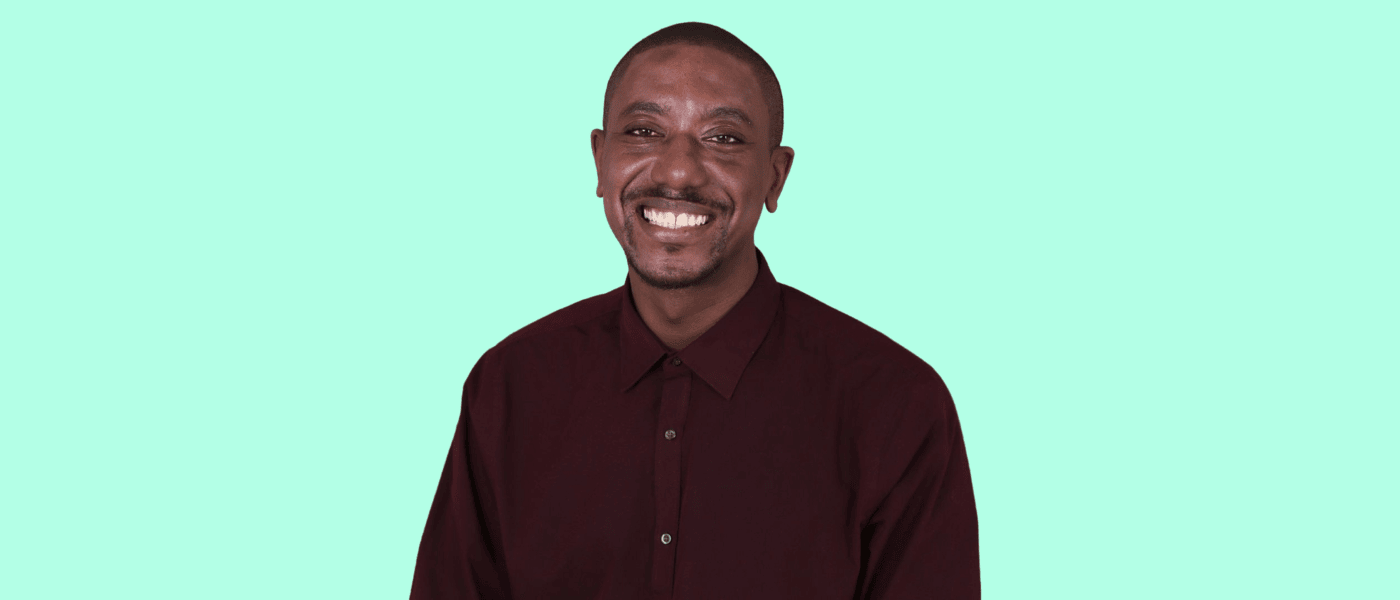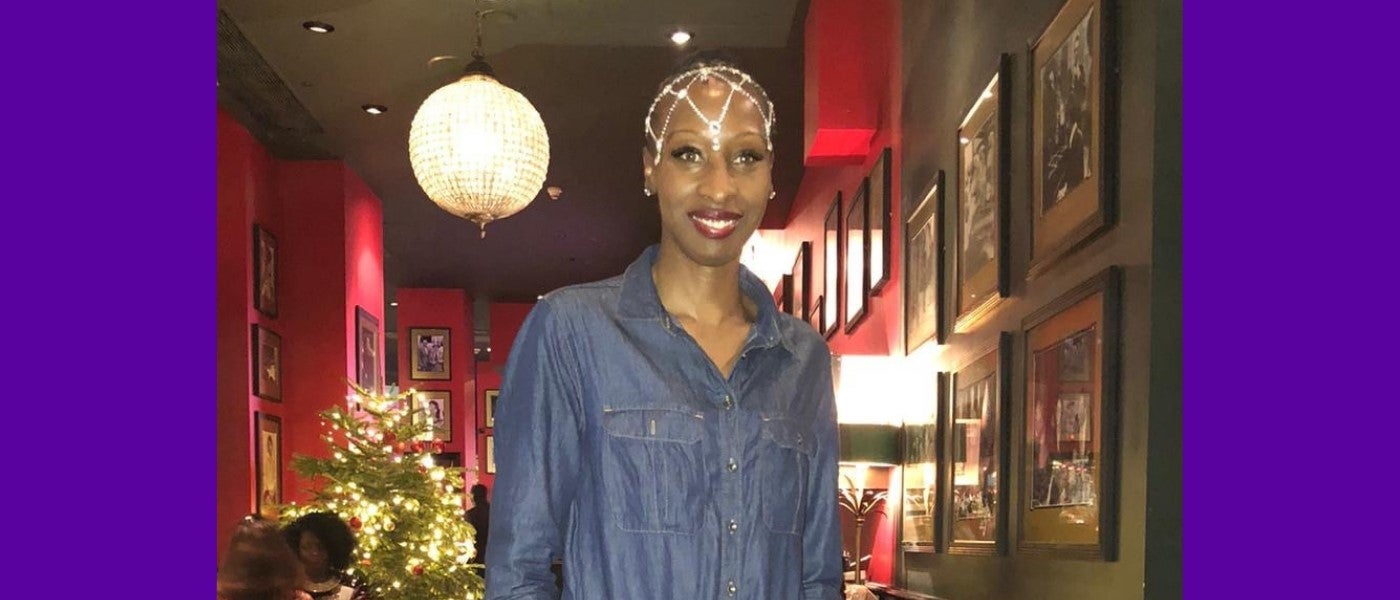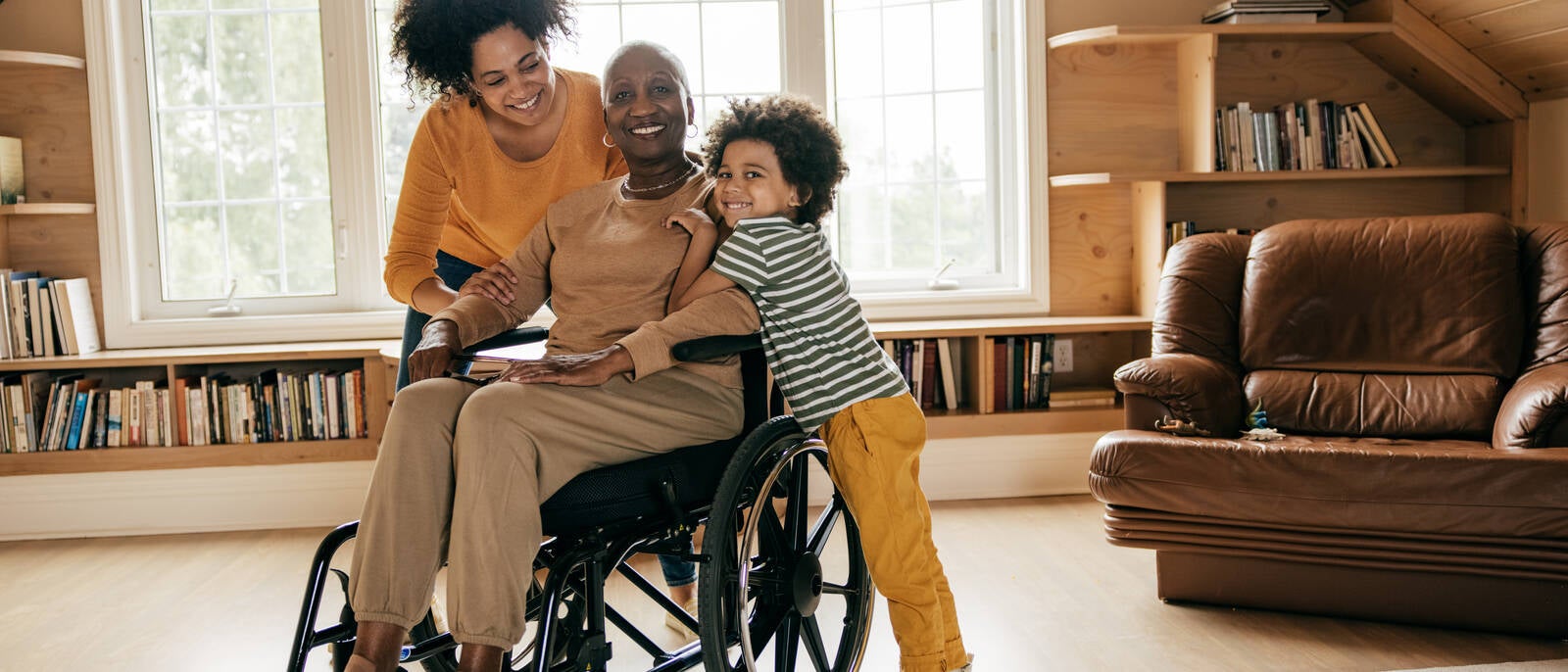- Home
- News and stories
- "For Black men, there are a lot of hurdles to overcome."
"For Black men, there are a lot of hurdles to overcome."
 13 October 2024
13 October 2024
Black History Month is a time to acknowledge the history and experiences of Black people. To mark this, Nikoma talks from his perspective as a Black man. He discusses how society perceives him, his upbringing, and his disabled identity.
For me, Black History Month is a time to reflect on what our ancestors went through to bring us to where we are today. To honour this, I’m reflecting on what I’ve been through to bring me to where I am now.
I grew up in a predominantly white area. My school was the same. I feel that I endured a lot of systemic racism in these places.
It wasn’t the type of racism that was obvious. But it was built into the fabric of people’s lives. They may not have even realised that their actions or words were racist.
I remember having to drive with my license and insurance details with me. That was because I got stopped all the time by the police. This is one examples of the attitudes I faced.
“This has its roots in how I was made to feel as a child.”
As a Black man, my background has had an impact on how I feel about my disabled identity. For example, I often feel simply unable to be as protective for my family as I’d like.
This has its roots in how I was made to feel as a young child growing up. My father was and has always been a provider. Whenever I had any issues as a child, I could bring them to him, and he’d sort them out.
I wanted to be that for my daughter and my family. But, after being diagnosed with MS, there’s so much I can't do now.
“We’d rather do it alone than as a team.”
For Black men in particular, there are a lot of hurdles to overcome. These include feeling responsible for the success of their family unit. Additionally, we can be very proud people.
Very often, we’d rather do it alone than as a team. If that man is sporting a health condition, he may not be in a position to succeed alone. He’ll often decline help from others, as well.
I also feel that Black men aren't so open to sharing their issues. They may feel that it makes them look weak.
In terms of health, this can have serious implications. In trying to keep up an image, they're hiding the weaknesses. But they will always surface.
“I didn’t want to celebrate my disabled identity.”
I’ve felt that I've not been able to be what I saw when I was growing up, and It’s been very difficult to turn that feeling around.
There was a time where I didn’t want to celebrate my disabled identity. Although I’ve mostly gotten over this feeling.
It was mainly during the coronavirus lockdowns. I was very focused on myself due to not being around many other people. This seemed to highlight my condition, and not being physically able to do certain things.
Naturally, this made me feel less positive.
“It’s taken me longer to be comfortable in my body.”
My journey towards changing my mindset has been a long and tricky one. I’d spent most of my life without a condition. That meant I was used to being able do many things without much consequence on my body.
However, I have to be way more careful about how I live my life now. My body doesn’t respond as it used to.
It’s taken me longer to be comfortable in my body, and to find pride in it.
“I still feel prejudicial eyes”
For me, living in the UK as a Black disabled man has its ups and downs. People that may otherwise feel threatened by my tall stature may not now. They may actually be more willing to help. This is due to me relying on a cane.
But I still feel the prejudicial eyes when I’m doing something that’s non-threatening. For example, when I’m sat in a local park or in a local swimming pool.
Sometimes, I still feel a bit uneasy.
“I became prouder of who I’d become.”
I came to feel confident in my disabled identity by slowly opening up about my condition. This made me realise people were more accommodating than I once thought.
As I did this, people continued to support me. Or they began to when it hadn’t been apparent in the beginning. I gained the courage to be more and more open. As a result, I became prouder of who I’d become.
Ironically enough, becoming disabled has actually been positive for me. It has helped me be more vocal about how I feel, and to accept help rather than struggling alone. It’s also brought me out of my shell.
“Don’t ever feel judged by other people.”
I'd tell someone who's become newly disabled that they cannot change what’s happened to them. That’s regardless of the cause of their impairment or condition.
All your effort needs to be concentrated on coping the best you can. That may include being as open as you can be about what you need help with.
Don’t feel judged by other people. You have to look out for yourself. This includes owning your new disability.
“You are not alone.”
Disabled Black men should know there are other people in similar situations to them. No matter how hard things seem, we're all going through it.
By opening up, you can attract the help that you need to achieve the impossible.
You are not alone.
Are you looking for another story like this? Read Shaun’s experience of being a Black man with a mental health condition.
 13 October 2024
13 October 2024








